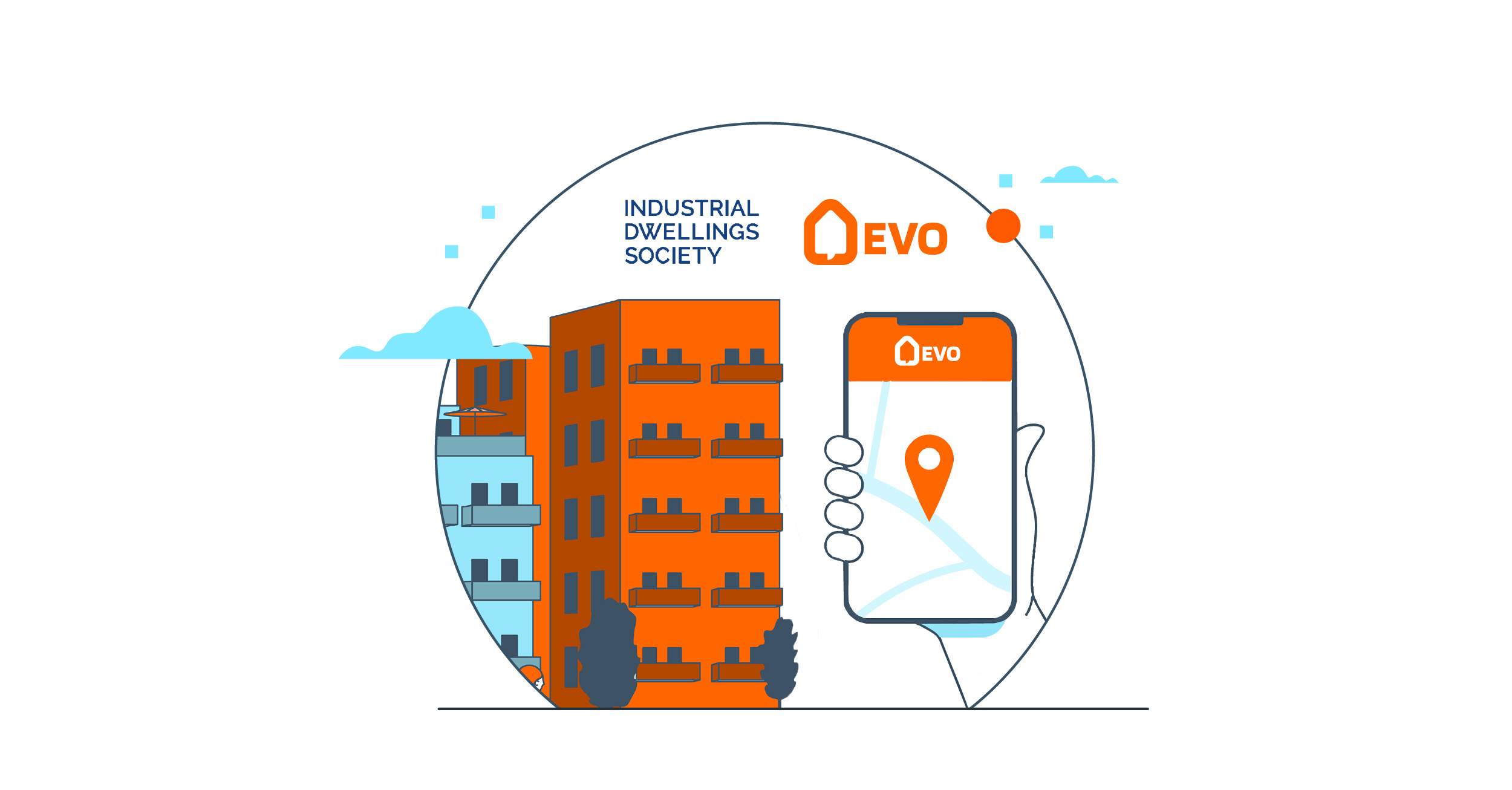
| Highlights |
|
Housing management systems (HMSs) are crucial for any organisation that manages a large residential property portfolio.
They can help make operations more efficient, reduce costs and hassle, and improve the resident experience.
However, many organizations still don’t use them or use multiple disparate systems that do not integrate with each other. As a result the quality of the UK’s rental housing stock has been diminishing, forcing many people to live in poorly maintained homes that may not be safe and secure.
This article explains what an HMS is. We’ll also explain why tools like this help housing providers offer better quality homes and service to their residents.

What Is a Housing Management System?
A housing management system (HMS) is software and technology that helps landlords manage their properties.
Each HMS tends to focus on a particular type of organisation. Examples include:
🏠 Private landlords.
🏠 The social housing sector.
🏠 Holiday lets.
They fulfil a range of functions for landlords. Depending on the type of property they are used for and the type of organisation using the software, an HMS might include tools for:
✔️Requesting and scheduling repairs and maintenance requests.
✔️Communicating with tenants and tradespeople.
✔️Collecting rent.
✔️Managing tenancy documents.
✔️Accounting.
✔️Finding new tenants.
✔️Gathering and analysing property data.
✔️Reporting.
✔️Dealing with Complaints
✔️Managing Compliance
Some HMSs specialise in one or more of these functions. For example, EVO focuses on improving housing quality by allowing landlords to deliver better and more efficient repairs and maintenance.
This article focuses on HMSs that are used by social housing providers.
Why Are Housing Management Systems Important for Social Housing Providers?

The quality of someone’s home has a significant impact on the quality of their life. Therefore, having a good-quality home and a great tenant experience is critical to the welfare of the UK’s four million social housing tenants.
Having a good HMS is important because it enables housing associations to deliver safe and secure homes with high levels of resident satisfaction.
The problem is that the complexity of housing management increases in line with the number of properties an organisation has in its portfolio.
Most housing association portfolios are growing, but the quality of the management systems hasn’t kept up.
Many housing associations have out-of-date systems. These tend to rely on:
-
Phone calls and emails to communicate.
-
Self-serve portals for residents to access services.
-
Spreadsheets (or worse, paper and filing cabinets) to store data.
Many registered providers of social housing are overstretched and stuck with poor-quality out-dated systems. This means they are unable to:
-
Communicate with tenants effectively.
-
Deliver efficient and good-quality repair and maintenance.
-
Access and use data to make better decisions.
The housing providers end up managing lists of issues and complaints rather than actually resolving reported issues and therefore improving the overall situation.
A good example of this is Sheffield City Council. The number of housing disrepair legal cases being made against the council has increased by 1,584% in five years from 117 to 1,970.
These cases cost the council £2,986,269 during the year 2022-2023 alone.
Sheffield City Council says the two main reasons for this are a backlog of repairs caused by the COVID-19 lockdown and the Homes Act giving tenants the right to take their landlord to court for failing to meet minimum housing standards.
An efficient HMS can help improve many of these issues by improving communication with residents and completing repairs faster.
Why Digital HMSs Are the Future of the Social Housing Sector

There are three main reasons why digital HMS are the future:
📱People expect to be able to manage services using their mobile phone - housing is no different.
🤖They allow automation, which increases efficiency.
⚙️They centralise all data, making it easier to use.
Let’s look at each of those in detail:
Managing services via mobile phone
Most people under the age 42 (i.e. millennials) prefer and expect to be able to access services using their mobile phones. They feel the same way about managing their housing.
They expect to be able to get updates on their property, manage their tenancy and request home repairs without having to log into their emails or an online portal.
If it’s easy for them to do things like request repairs, they are more likely to do so. This makes it less likely that small problems will spiral into big issues, or they will become disenfranchised due to feeling uncared for.
Automation for increased efficiency
An HMS also enables housing associations to increase efficiency by automating certain simple but time-consuming tasks.
This can help speed up processes, improve communication and reduce resource requirements.
Residents are happy because repairs are more efficient and the housing association is happy because it can reduce costs.
Centralised data for better decisions
Many housing associations outsource to different service providers. For example, one company might provide plumbing, while another provides electrical services.
These companies usually keep the property data they collect and don’t share it with other companies or the housing association. If the contractor uses its own system then often it isn't or doesn't integrate with the Housing Providers systems.
As a result, the housing provider has incomplete or siloed data. It’s difficult to analyse and even if you do, the results will be unreliable because of inconsistencies or gaps.
A digital HMS will automatically collect data from across your organization and store it in one place in a common format.
This allows the housing association to spot patterns in the data. In turn, this allows them to plan
and make better-informed, more proactive management decisions. For example, you might find that specific boilers often fail after about ten years. Based on this, you might plan to replace each boiler after this period. Or you may find that certain apartments exposed to the weather on the end of a block are more likely to suffer from damp and mould issues.
The Benefits of Using a Housing Management System
There are several reasons why an HMS is important.
Save money
As mentioned above, an HMS improves the efficiency of your repairs and maintenance. This means:
-
Less admin
-
Fewer repeat visits from tradespeople
-
Better resource planning
-
More problems get dealt with before they become major issues
Ultimately, this means lower costs - a critical requirement for housing associations with squeezed budgets that are often taking on more properties.
Improved property knowledge
We’ve already mentioned the benefits of automation. But having a decent HMS solves many of the inefficiency issues that plague housing organizations - for example, repeat visits to a property due to a lack of accurate information.
An example of this might be when a tenant reports a leak from their ceiling. The housing association might naturally dispatch a plumber to make the repair. However, when the plumber arrives they find that it is a top-floor flat and they actually need a roofer.
Tradespeople can also access the property information they need. This doesn’t just include information on the building itself, but also the parking situation and how to gain access.
Comprehensive management information
Having an overview of their entire property portfolio along with detailed data allows housing associations to monitor trends and produce reports that improve decision-making.
This is useful for resourcing, budgeting and many other critical parts of strategic planning.
Greater transparency
An HMS provides a single source of truth. In other words, only one system is used to record progress on tasks. That means you can rely on the HMS to be correct.
Property data can be enriched from 3rd party sources to give more useful information on a property, for example whether the property is a top-floor flat, how high the gutters are and what the EPC rating is.
This improves accountability. For example, with EVO if a tradesperson doesn’t sign off a job in a reasonable timeframe then an alert is triggered for someone to investigate.
More accurate KPI monitoring
Many housing associations use key performance indicators (KPIs) to measure how well they are delivering for stakeholders.
For example, these might include:
-
First-time fix rate
-
Average time to complete repairs
-
EPC ratings
-
Number of homes awaiting adaptations
-
Tenant satisfaction levels
HMSs help you to accurately collect and monitor this data in real time, so you can see where your organisation is performing well. This real-time information also gives you the opportunity to address any issues as early as possible.
Deliver better-quality housing
Better communication with tenants, combined with more efficient and proactive repairs and maintenance, will ultimately mean your properties are kept in better condition.
This is because residents are more likely to report issues and you are able to make repairs more efficiently. It also means residents are more likely to treat the property like their own home.
Better tenant experience
As mentioned, a good HMS will ensure repair requests are dealt with quickly and efficiently. This improves trust with your tenants and encourages them to engage with you about their home.
Good-quality housing and good service are the ingredients for a great tenant experience. Deliver this and you’ll soon see your tenant satisfaction levels and your reputation soar.
EVO: A Single Source of Truth for Repairs and Maintenance
Is your housing organisation suffering from poor tenant satisfaction? Are you struggling to keep up with repairs and maintenance?
Try EVO. We’re a fully managed, digital end-to-end solution for all your property repairs and maintenance needs.
We make communication between residents, housing providers and tradespeople effortless.
We help landlords to:
-
Improve first-time fix rate
-
Build trust and confidence with residents
-
Gather information and data for better decision-making
-
Create a better tenant experience
If you want to see what EVO can do for your organisation, get in touch today.
PHOTO BY EVO


